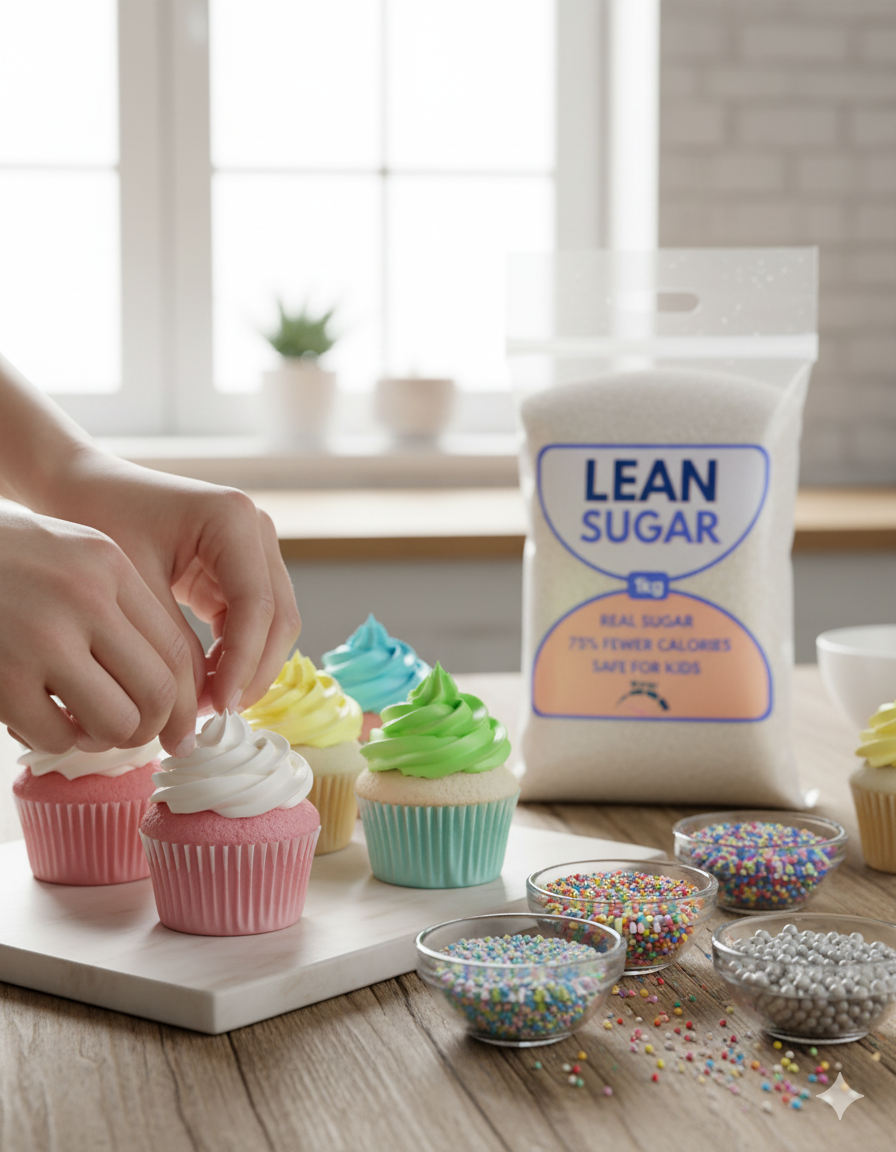
How Sugar Ages Your Skin (And What to Do About It)
We all know sugar can add extra pounds, but few realize it can also add years to your face. Dermatologists call it the “silent ager” because while you’re enjoying that cake or soda, sugar may be breaking down your skin’s elasticity, leading to wrinkles, dullness, and sagging.
The good news? You don’t have to give up sweetness to protect your glow. Let’s dive into the science of how sugar ages your skin, and how smarter choices like LeanSugar can help you keep both your sweetness and your youthful radiance.
🔬 The Science of Glycation
When you eat sugar, your body breaks it down into glucose and fructose. These sugars can attach themselves to proteins in your skin, particularly collagen and elastin, the fibers that keep your skin firm, bouncy, and wrinkle-free.
This process is called glycation, and it creates harmful molecules known as Advanced Glycation End Products (AGEs). Over time, AGEs cause your collagen and elastin to become stiff and brittle. Instead of springy, youthful skin, you’re left with:
-
Fine lines and wrinkles
-
Sagging skin
-
Loss of glow and smoothness
Dermatologists now recognize glycation as one of the biggest contributors to premature aging.
👀 The Visible Signs of Sugar Damage
If you’ve ever noticed your skin looking dull or tired after a sugar-heavy weekend, that’s not your imagination. Excess sugar in the diet can cause:
-
Wrinkles and fine lines: Glycation weakens collagen, making wrinkles appear faster.
-
Dull, sallow skin tone: Sugar increases oxidative stress, robbing skin of its glow.
-
Loss of firmness: Without strong elastin, skin begins to sag earlier than it should.
-
Slower healing: Glycation interferes with your skin’s ability to repair itself.
Put simply: sugar doesn’t just affect your waistline, it shows up on your face.
🥄 Cutting Back Without Cutting Sweetness
So, should you swear off sweetness forever? Not necessarily. What your skin (and body) needs is less calorie overload, not less joy. That’s where smarter alternatives come in.
Why not artificial sweeteners?
Most “zero calorie” sweeteners are chemical substitutes. They can taste artificial, leave a bitter aftertaste, and may not perform well in baking. Some are even controversial in terms of long-term health effects.
Enter LeanSugar.
LeanSugar is a natural blend of sucrose, monkfruit, and allulose. That means:
-
Real sugar taste because it actually contains sucrose
-
75% fewer calories per serving (10 calories vs 30 in regular sugar)
-
No bitter aftertaste thanks to monkfruit and allulose
-
Safe for everyday use for kids, families, and anyone who loves sweetness
By swapping LeanSugar for regular sugar, you cut down the glycation load without giving up the authentic taste your body recognizes. It’s a smarter way to keep your skin and your health on your side.
💡 Practical Tips to Protect Your Glow
Here are some easy swaps you can start today:
-
Switch your coffee sweetener → Use LeanSugar instead of 2–3 teaspoons of regular sugar.
-
Baking with LeanSugar → Brownies, cookies, and cakes taste the same, but with fewer calories per slice.
-
Dessert dusting → Sprinkle LeanSugar over fruit or pancakes instead of powdered sugar.
-
Cut soda → Try sparkling water with lemon and a spoon of LeanSugar for sweetness.
-
Stay hydrated → Sugar dehydrates skin, so pair your LeanSugar swaps with plenty of water.
🌟 The Bottom Line
Too much sugar accelerates aging from the inside out, but cutting back doesn’t mean losing the sweetness you love. With LeanSugar, you can:
-
Enjoy the real taste of sugar
-
Reduce calories by 75%
-
Protect your skin and health in the process
It’s time to sweeten smarter, not harder.
